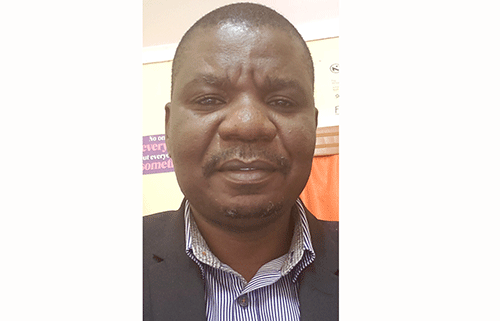Faustinus Shikukutu
Bureaucrats and politicians’ inability to coordinate their activities efficiently as well as the lack of collective action had been the downfall of Namibia’s public service systems. Reports of misunderstanding between
political leaders and bureaucrats about where an envisaged project is to be constructed have enjoyed media attention, and angered the affected residents. Most recent is the Ndama South school debacle in the Kavango East region, which continues to cause frustrations and mistrust between residents and the regional leadership. If proper coordination was alive, the misunderstanding, dispute and demonstration could have been avoided. It is imperative to point out that a lack of coordination between stakeholders is the cause of dysfunctions and confusion in service delivery. The Namibian public administration currently suffers from coordination deficiency due to which, in many aspects, the objective of benefitting the
residents is not fulfilled. The challenge is, we are surrounded by those with poor leadership skills. All too common, we see selfish, opinionated, greedy and deceitful people who move into the upper echelons of leadership
with little regard for serving the public. Although politics is the first area that pops into many of our minds, these same harmful attitudes are being portrayed by those in the public and private sectors. We have poor leaders who have the mentality of always being right and who feel they have the moral high road, therefore, they cannot hesitate to shove their opinions (and behaviour) down the throat of others. One thing they forget is that a lack of organisation and coordination produces a chaotic setting, as witnessed by many demonstrations around the country.
Effects of miscoordination
The current economic predicament experienced by our country requires that governance and delivery of public services aimed at managing limited
available resources should be delivered effectively to those in
need of it. But despite this conundrum, miscoordination caused by egocentric leadership is depriving many residents of the required information and infrastructure development as they prioritise personal gains and inclusion of politics.
This deprivation not only results in economic losses, but also causes a deterioration of the state of social well-being. We have observed how the lack of coordination between politicians and bureaucrats, and at times OMAs (Offices, Ministries and Agencies) led to decreased productivity, wasting of resources, complicated processes, and delayed the completion or commencement of projects. With the availability of limited public resources, there is a need to meet the growing expectations of citizens, and ensure the delivery of services in a transparent and timely manner.
Using confidentiality as reason for not sharing information, some bureaucrats are opponents of transparency, just to protect their ineffectiveness. On the other hand, egocentric politicians who have their own political agendas prevent the endangerment of their turf, ignoring the existence of coordination.
This might be one of the contributors to why our government tasted limited success in the achievement of the development goals such as poverty eradication through several social welfare programmes, and infrastructure development.
What coordination vs egoistic behaviours entail
According to Král (2007), coordination is simply defined as an act of coordinating or making different things or people work together in order to fulfill a common goal. It is the integration of diverse environments, boosting the efficiency of operations to enhance the chances of success. Miscoordination, on the other
hand, is the state of being
disorganised or in disarray as a result of a lack of coordination between stakeholders. Being egoistic is considered to be self-centred or preoccupied with oneself, and the gratification of one’s own desires. Self-centred people simply do not see the impact that their behaviour has on others. They lack self-awareness, and are self-righteous. This means they don’t understand their skills and abilities, or their strengths and weaknesses. Without self-awareness, egocentric leaders assume to be the best and that they’re always right, no matter what. They’re so self-involved, so concerned with their own image that they fail to see how their egocentric behaviour limits the results they achieve through others. On the other extreme are those who think so highly of themselves and their judgement that they see no need to ever involve others in their decision-making or planning. They act—and direct others to act—without ever asking for additional input. Leadership should be about achieving results through people, and egocentric leadership limits the achievement of results.
It is about serving
Those in leadership positions, at whatever level, should not think about themselves, but about those they are called to serve. Time has arrived to coordinate the efforts of the government by systematically integrating practices that create accountability within
the organisation. As a leader, it’s your job to learn how to listen to others’ ideas, even if they don’t appear to have merit, and build
upon them for solutions. Being righteous is a career saboteur! Leadership
should not be about the leader,
but about the people one leads.
Many groups crash when they don’t take the time to effectively work through differences of opinion. Productive discussions, sometimes seen as confrontational, should be encouraged to build better outcomes, uncover overlooked problems and build agreement. Therefore, coordination should begin at the planning stages of any service delivery or infrastructural development in any constituency or region to avoid unnecessary frustrations and demonstrations.


